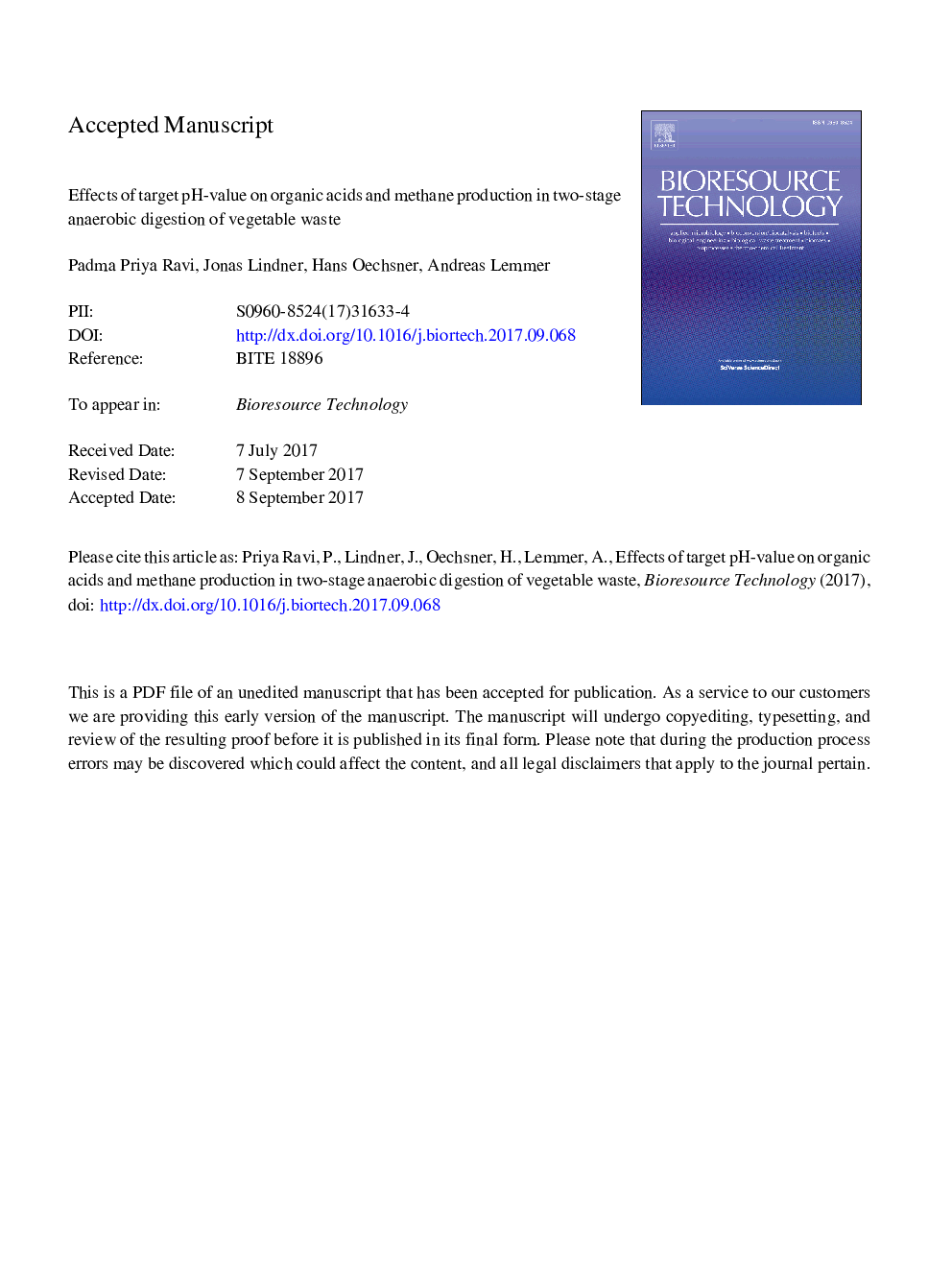| Article ID | Journal | Published Year | Pages | File Type |
|---|---|---|---|---|
| 4996628 | Bioresource Technology | 2018 | 33 Pages |
Abstract
Vegetable waste is one of the major organic residues available for sustainable bioenergy production. The aim of this work is to study the influence of pH-value on process stability, hydrolysis, degradation degree and methane production in two-stage anaerobic system. A mixture of vegetable wastes with carrot mousse, carrots, celery, cabbage and potatoes was treated in two-stage system at target pH-values 5.5 and 6 in acidification reactor (AR). At pH 6, high concentrations of organic acids were recorded whereas high amount of hydrolysate was produced at pH 5.5. The chemical oxygen demand (COD) concentration in the hydrolysate produced in AR was 21.85% higher at pH 6 compared to pH 5.5, whereas the overall specific methane yield was slightly higher at pH 5.5 (354.35 ± 31.95 and 326.79 ± 41.42 L kgâ1 oDMadded, respectively). It could be shown, that the described two-stage system is well suited for manure-free digestion of vegetable waste.
Related Topics
Physical Sciences and Engineering
Chemical Engineering
Process Chemistry and Technology
Authors
Padma Priya Ravi, Jonas Lindner, Hans Oechsner, Andreas Lemmer,
